Every now and then news appears on the Internet or on TV screens about children who are not like everyone else. As soon as they get out of the children's cradle, they begin to amaze those around them with their extraordinary talents. At the age of 4 they can already read books fluently. different languages, and in 6, as if playing, they make a scientific discovery, which for many hundreds of years the great gray minds never reached. At 11, they enter college and receive Nobel Prizes and awards. The whole world talks about them, they are child prodigies, children with unique characteristics.
Amazing - nearby
Humanity is constantly in search of the unknown. We are looking for extraterrestrial intelligence on distant planets, expecting that it will share its innermost secrets with us and help us make the greatest discoveries. But how do we behave when that same mind, superior to the average statistical mind, suddenly appears before us in the guise of ourselves? What do we know about mystery children? Perhaps the only thing is that child prodigies are natural. The level of intellectual development of such children is much higher than that of their peers. This allows them to develop rapidly and already at a young age make a lot of discoveries or reach certain heights. Famous child prodigies are the treasure of the nation. But few adults are able to admit that we not only cannot explain the phenomenon of the birth of such babies, but we do not even know how to properly communicate with such miracle children.
They are
For some reason, we often hear about child prodigies appearing in England, China, India or any other country. Children with high IQs at a young age become professors and challenge Einstein's theories, play the violin and search for a cure for cancer, create nuclear reactors and multiply six-digit numbers in their heads. But for some reason we rarely read and learn that child prodigies are appearing in the post-Soviet space. Are children with “non-childish minds” not born among us? Not at all, for some reason they just aren’t talked about enough.
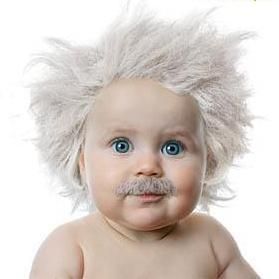
Geniuses from the cradle
They are not often talked about today, but according to statistics, there are gifted children in every school and almost every class. Officially, there is an opinion that information about them is not made public only because excessive attention from the press and the masses can negatively affect the child’s psyche. Whether this is true or not, one can only guess. One of the influencing factors is the fact that such children, after finishing school or even before that, go to other countries to receive education. Of course, there are child prodigies in Russia, examples are known to many. It is quite possible to get information about them, but it would be much better if they were given due attention in the media news.

Young talents
Each child prodigy manifests itself at a different stage of life. Some people begin to “act” when they are very young, while others are older, at school age. Each of them has their own preferences, some write poetry, while others work in a scientific laboratory. There are still child prodigies in Russia today; the examples given below will introduce us more closely to them.

Nika Turbina
Perhaps one of the most famous Soviet child prodigies is Nika Turbina. This is a girl poet, her first book “Draft” was translated into 12 languages and had a circulation of 30,000 copies. They found out about her all over the world, at that time Nika was only 9 years old. She played roles in films, and after that the film “Nika Turbina: The Story of Flight” was made about her.
Andrey Khlopin
At 10 years old A ndrey explained how “noctilucent clouds” appear, and this remained a mystery to scientists for many years. For his hypothesis, a boy from Krasnodar was included in the Guinness Book of Records. Another example of the fact that there are child prodigies in Russia.
Afanasy Prokhorov
Theater artist, dancer, pianist and singer, and he is only 12 years old! He performs classical works in 6 languages, has repeatedly taken first place in international competitions, and performs at charity concerts. The boy is originally from Moscow, but in 2007 he left for America, and today he is already gaining recognition there.
Dasha Baldenkova
She is only 18, but she already works in a research and educational laboratory at the center for applied nanoelectronics. Daria is a multiple winner of competitions and Olympiads. She won two semi-finals of the world's main competition for school students, Intel ISEF. It should be noted that many Nobel Prize laureates have already emerged from its finalists.
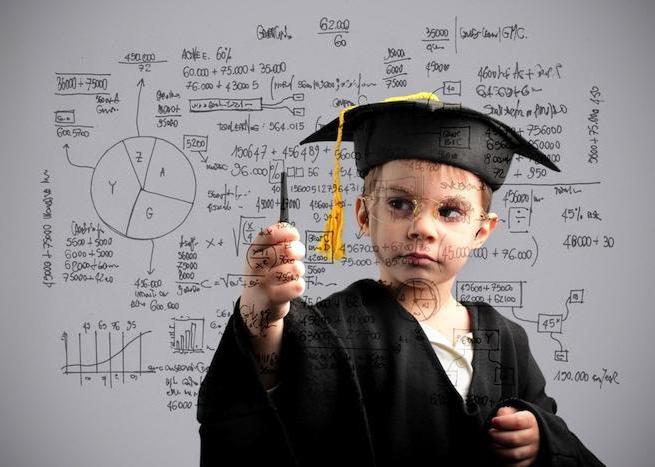
Here are just a few stories about what child prodigies do and work on. Of course, a variety of examples can be given, there are many of them.
They made history
Few people know that many famous Russian people were geniuses from birth. Some were able to prove themselves and went down in history, some were forgotten after a while, while others simply remained unrecognized. Child prodigies have been born in Russia since ancient times, but this is what they began to call them relatively recently. These are Pushkin and Griboedov, Lermontov and Peter I, as well as Boris Godunov and Tyutchev, Chukovsky, Gogol, Blok and many dozens of others.

Most smart man who ever lived on our planet - William James Sidis. His IQ reached about 300 units, at a time when intelligence ranges from 80 to 100. He was born in 1921 in the USA, in the family of Boris Sidis, a Jewish immigrant from Ukraine. He got this unusual name in honor of the American philosopher, who later became the boy’s godfather. William knew more than 40 languages (according to unofficial data, about 200), graduated with honors from Harvard at the age of 16, was the author of 4 books at the age of eight, and learned to write before he was 1 year old. He studied psychology, history and the science of the evolution and development of the Universe, and wrote scientific treatises that are only today recognized by science. What’s most interesting is that he worked as a simple accountant in a small office and was terrified that someone would find out about his “talent.”
After
Of the most different corners The planet hears news that child prodigies are appearing. Examples of their lives and incredible abilities most likely prepare us for the fact that humanity will soon switch to radically new level of its development. What this will lead to and what our life will be like in a couple of hundred years, we can only imagine.
In August it became known that the Russian Government is going to create a register of gifted children in the country. There is already a draft law, the “selection criteria” for prodigies have been developed: the list will include winners of the final stages of Olympiads, winners of intellectual and creative competitions, young athletes, scientists and other children with outstanding abilities. However, these children are not dry spots in the victory rankings. Behind each of them, in addition to innate talents, there is exorbitant hard work and determination, and it would be nice to know them by sight, the young heroes of our time.
EGOR SHEVCHUK
Winner of the gold medal at the international geographical Olympiad iGeo.
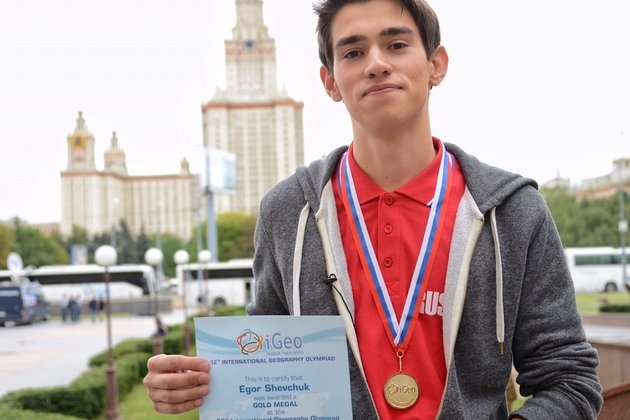
A graduate of a Petrozavodsk school beat out high school students from 40 countries and received a gold medal at the International Geographic Olympiad, which was held in Tver from August 11 to 17. The guys had three competitive stages: theory, work “in the fields” and a multimedia test, everything was English. For Yegor, this was not the first Olympiad - he had already participated in three all-Russian and one international geographical competition. According to the boy, geography used to be just a hobby for him, but in high school he became seriously interested in this subject and now entered the geography department of Moscow State University.
GIORGI JISHKARIANI
Winner of the XV International Television Competition for Young Musicians “The Nutcracker” in the specialty “Wind and Percussion Instruments”.
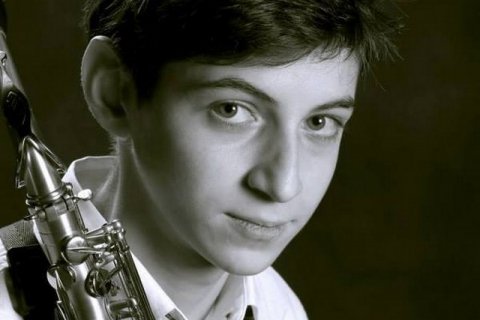
Fifteen-year-old Giorgi was born in the city of Shuya, Ivanovo region. He studied at the Children's Music School - first in vocals, then in playing the saxophone. He began to participate in music competitions and always won prizes with his virtuoso performances. Step by step he walked towards victory at the prestigious music competition “The Nutcracker” and achieved his goal, receiving a gold award in his specialty. The final of the competition took place on the stage of one of the main halls of the country - the Concert Hall. P.I. Tchaikovsky. Giorgi performed “Little Chardas” by Pedro Itturald, accompanied by the Moscow Philharmonic Symphony Orchestra, after which the audience gave the boy a standing ovation. Giorgi’s future plans are to continue to hone his skills and enter the Gnessin School.
DANILO KHARITONOV
Prodigy pianist. In 2014, he carried the Olympic flame during the Moscow leg of the relay. This summer he reached the finals of the country's main music competition - the XV International Competition named after P.I. Tchaikovsky.
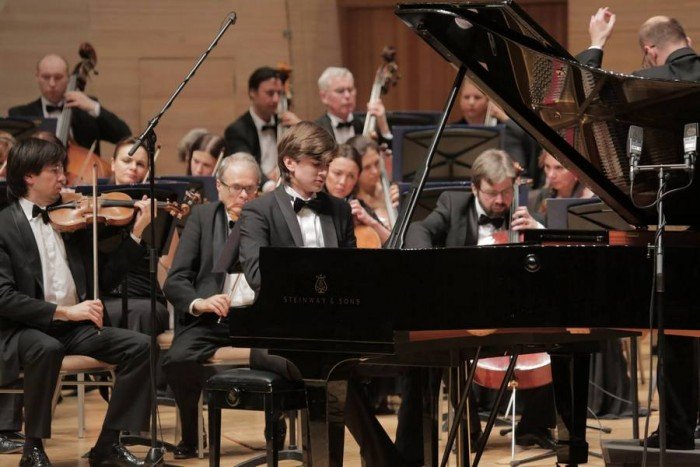
Danya was born in Yuzhno-Sakhalinsk. His musical talent was discovered at the age of five, when the baby learned to play the piano. From that moment on, events began to develop very rapidly. At the age of seven he performed with an orchestra for the first time, at eight he received the main prizes of the international competition named after. S. Rachmaninov and the Mozart-Wunderkind competition, and two years later - the Golden Nutcracker. By the age of sixteen, he had already gone through the path of a serious musician - he performed with the Bolshoi Symphony Orchestra. P.I. Tchaikovsky, with the Mariinsky Theater Orchestra, with the Moscow Virtuosi, conquered New York's Carnegie Hall and even accompanied Diana Vishneva at the Context festival of modern choreography. In 2014, he carried the Olympic flame during the Moscow leg of the relay. This summer he reached the finals of the country's main music competition - the XV International Competition named after P.I. Tchaikovsky.
YULIA LIPNITSKAYA
Winner of a gold medal in team figure skating competitions at the 2014 Olympics, winner of the European Figure Skating Championships.
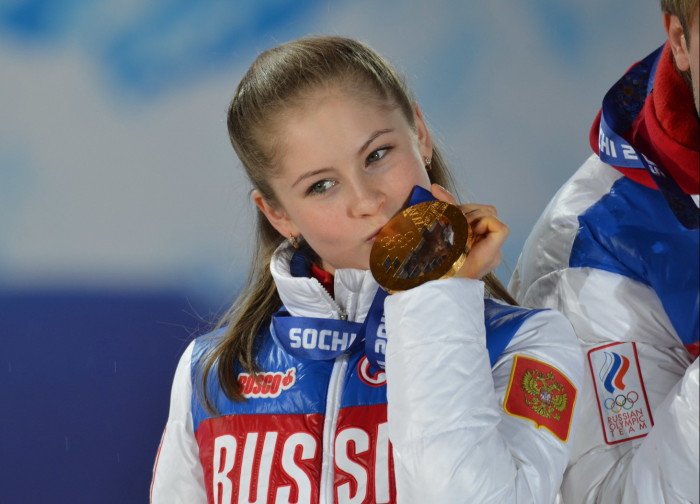
Yulia was born in Yekaterinburg, where she first started skating at the age of 4. By the age of eleven, she had mastered all triple jumps, and from that moment her path to the sports Olympus began: prizes in junior and then adult competitions, victories in the Grand Prix stages, gold at the European Championships and in team competitions at the Sochi Olympics . Yulia is one of the youngest participants in the history of Olympic figure skating, winner of the Order of Friendship and the titles Honored Master of Sports of Russia and International Master of Sports of Russia.
DANIIL FIALKOVSKY
Winner of the Grand Award of the world competition of scientific and engineering achievements of schoolchildren Intel ISEF.
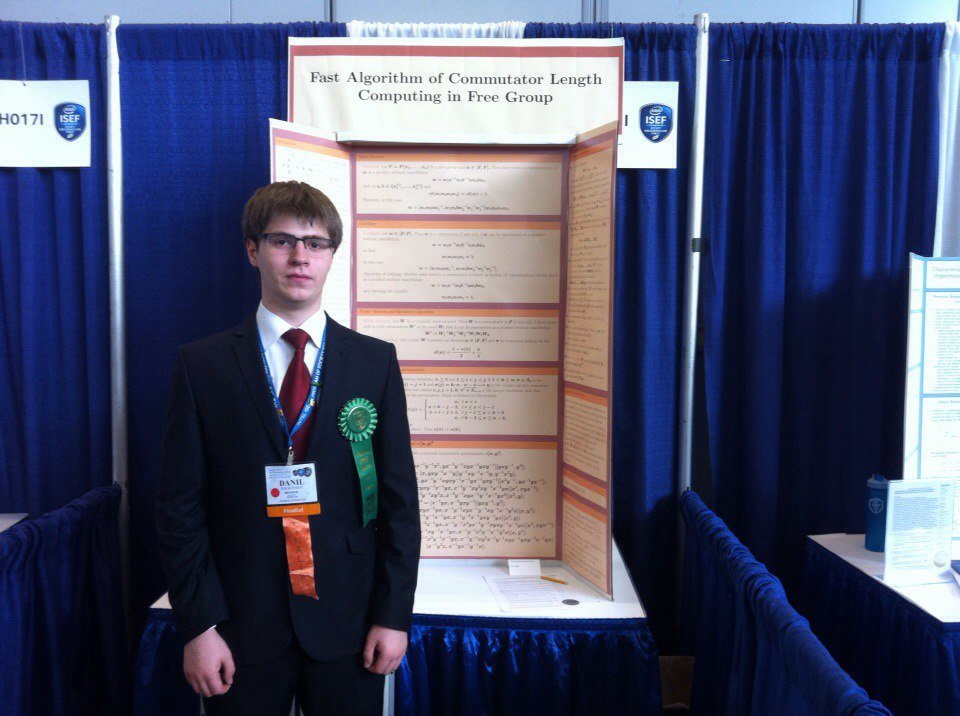
Daniil was born in Vladivostok, then moved to St. Petersburg, where he studied at a school with a mathematical bias. In 11th grade, together with my teacher, I submitted an application to the Intel ISEF competition. The research on algorithms, which he carried out for several months, brought the young mathematician the Grand Award, known as the “small Nobel Prize,” and at the same time recognition in the scientific world. In addition to Danil, more than one and a half thousand children from 70 countries competed for the award. Their work was evaluated by Nobel Prize winners, scientists and employees of the best universities in the world. Despite his obvious abilities in scientific mathematics, this year Daniil became a student at the Graduate School of Management of St. Petersburg State University.
MIKHAIL ANTIPOV
The youngest grandmaster of Russia-2013, master of sports of Russia.
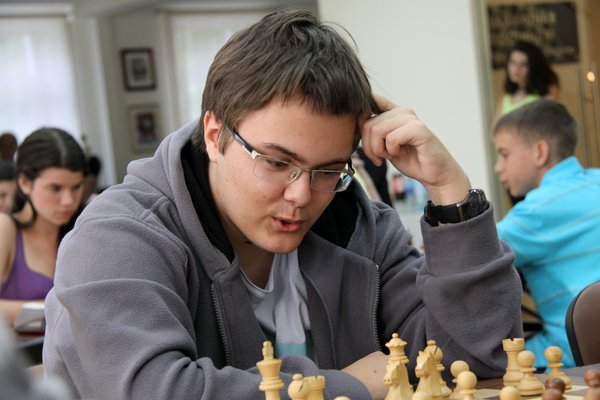
Mikhail was born in Moscow and learned to play chess at an early age. At the age of 14, he took second place in his age category in the FIDE World Chess Federation ranking, at 15 he received the title of Master of Sports, and at 16 he became the youngest grandmaster in Russia. The young chess player was supported by Evgeny Kaspersky. Today Mikhail is 18 years old, he is a student at the Faculty of Psychology of the Russian State University for the Humanities and continues to compete in chess tournaments.
DARIA KOLUPAEVA
Winner of the X All-Russian competition named after. Vladimir Mezentsev “Young Journalists of Russia” in the “Reporting” category, winner of the All-Russian competition “Test of the Pen”-2014.
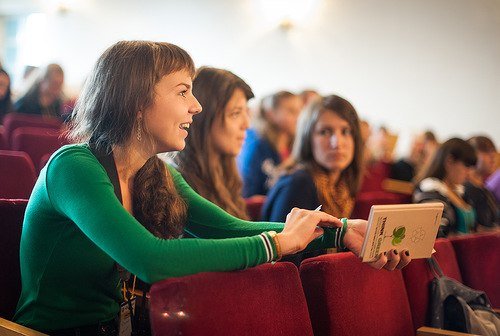
Dasha was born and studied in Krasnoyarsk. She wrote articles for school and municipal newspapers, constantly participated and won prizes in all-Russian journalistic competitions. Among her works are interviews with journalist, traveler and editor-in-chief of the program “Their Morals” on the NTV channel Dmitry Vozdvizhensky, and with New Yorker journalist Ian Fraser. This year Daria sent one of her materials - a report about a shelter for homeless animals to summer cottage residents of the Krasnoyarsk region - to the competition “Young Journalists of Russia” and took first place in the nomination. The competition was held with the support of the Faculty of Journalism of Moscow State University, the Faculty of International Journalism of MGIMO, the Union of Journalists of Russia, the radio station "Echo of Moscow", the magazines "Schrodinger's Cat", "Russian Reporter" and other organizations. Now Dasha is a first-year student at the Faculty of Journalism at Moscow State University.
VARVARA SHABLAKOVA
Actress.
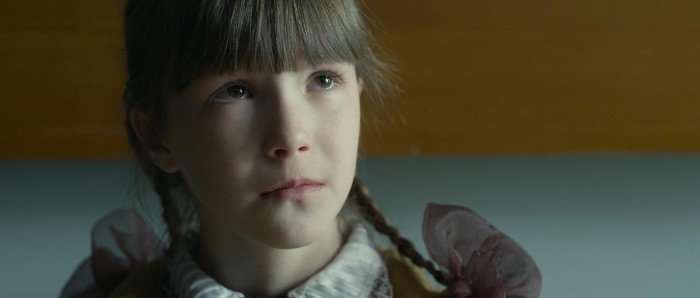
Varya was born in St. Petersburg in the family of actress Irina Salikova. The girl became famous thanks to the film “Pioneer Heroes,” which was released this summer. There she played one of the main characters in childhood - the lively pioneer Katya, who dreamed of exploits. The matured thirty-year-old Katya is played by Daria Moroz, and both actresses are like two peas in a pod. Varya's work has collected a lot positive feedback, and the director of the film, Natalya Kudryashova, said in one of her interviews that now her colleagues are calling her and want to get Varya and two other little “pioneer” actors in their projects. Varya also appeared in a promotional film for the Estel company, where Egor Beroev became her colleague on the set.
SABINA MUSTAEVA
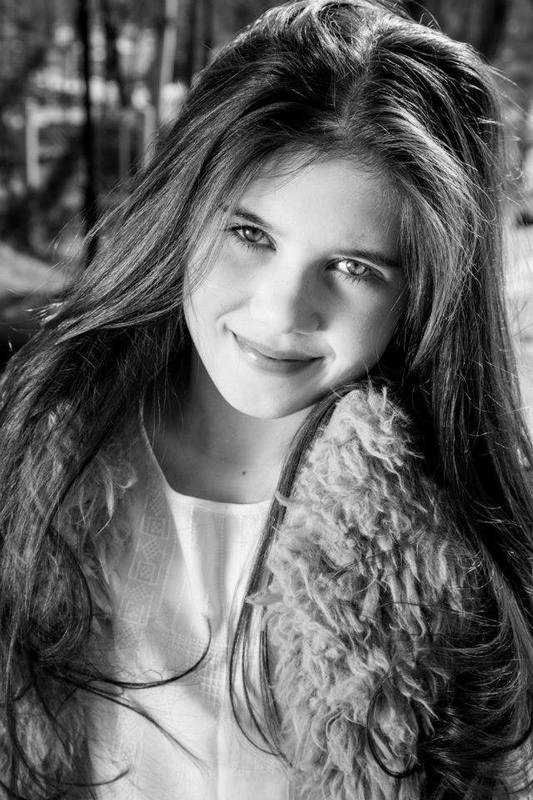
Sabina was born in Tashkent. Her grandfather is a saxophonist, so music has always been present in the life of a talented girl. At the age of 11, Sabina received the Grand Prix at the Tashkent festival “Gifted Children”, at the age of 13 she became a prize-winner of the “Children’s New Wave” competition. At the qualifying round of the children's “Voice”, all three mentors turned to her, and Sabina decided to go to Maxim Fadeev’s team. At the stage of duels, she dropped out of the project, but thanks to audience voting, she returned to the finals and won the competition. The girl decided to donate the proceeds from her first single, which became a prize for winning, to the Life Line charity foundation. She is now 15 years old and dreams of going to Berklee College of Music.
KONSTANTIN PATOV
Poet.
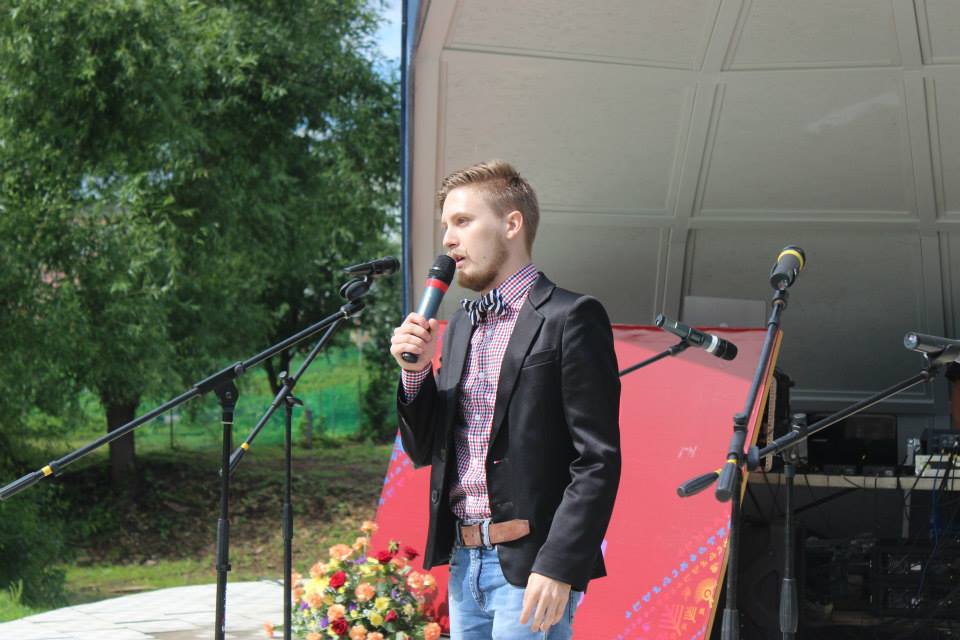
Konstantin was born in Yaroslavl. He studied acrobatics for 9 years, received the title of Master of Sports, but stopped training at the age of 15. He began to write poetry - first for himself, then began performing in public, reading poetry to musical accompaniment. Wrote several poems. Now Konstantin travels around the cities of Russia with solo performances (Voronezh, Kostroma, Kirov), participates in Moscow “Literary Mondays”. In September he performed at the large literary and musical concert “City of Poets” on Triumfalnaya Square together with actors from the Taganka Theater, Sovremennik, the Nikitsky Gate Theater, as well as popular artists Sergei Veksler, Gosha Kutsenko, Avangard Leontyev.
These are just a few talented guys - our contemporaries, but how many of them have already been and will appear?
Some become national heroes, but most still remain behind the scenes. Meanwhile, they are the real elite and the future of the country. I really hope it’s ours.
Found a mistake? Select it and press left Ctrl+Enter.
Nature - this inventor is constantly experimenting in her desire to make the species Homo Sapiens more perfect, and all imaginable and inconceivable techniques are used. The victims of these experiments, endowed with a non-standard view of the world, are called geniuses. Giftedness is nothing more than a deviation, an irregularity in mental development and brain structure. This is why geniuses pay an incredibly high price for their gift. These loners make progress, thinking originally, formulating truths inaccessible to ordinary reason, but they also pay for their genius. They pay with loneliness, instability, illness and early deaths. Very often genius manifests itself in childhood. The great Mozart wrote music and performed concerts from the age of three. At the age of 11, A. S. Griboyedov entered Moscow University, and at the age of 13, the outstanding physicist L. D. Landau became a student. But these are examples of accomplished people; more often the fate of child prodigies turns out to be sad and tragic.
Child prodigies in Russia - examples
In February 2011, 18-year-old Sergei Reznichenko committed suicide by jumping out of a window. This young phenomenon learned to read at the age of three, and to count even earlier - at two.
By the age of seven, he knew the periodic table and read L. N. Tolstoy’s four-volume epic “War and Peace.” Studying at school turned out to be a cakewalk for him. Sergei spoke several languages and was a winner of many Olympiads in a variety of subjects.
Teachers were afraid to call the intellectual superman to the board, because his knowledge of the subject was more complete and deeper than the teacher’s. At the age of 15, the talented teenager became a university student and moved into a dormitory.
Possessing a phenomenal memory, here too he began to master new subjects with amazing ease. But it all ended suddenly and instantly.
Reznichenko abruptly changed his lifestyle. Starting from the third year, the guy gave up on studying, began drinking, smoking, arguing with teachers, and being interested in girls. And then the troubles came all at once.
He lost a large sum on an online stock exchange, his relationship with his mother became strained, he was threatened with expulsion from the institute because of a failed exam, and finally, his beloved girlfriend left him.
Actually, the problems are quite everyday, many have encountered similar ones, and everything, in the end, ended well, but remember that a few paragraphs up we wrote about. (They pay with loneliness, instability, illness and early deaths).
The corpse of a boy who was confused in life, not yet getting to know it properly, was found by janitors at dawn under the dorm window.
Everyone in the Soviet Union knew the name of this girl. She was as popular as the cosmonauts, Alla Pugacheva or Sofia Rotaru.
The collection of poems “Draft,” which she published at the age of 9, was translated into 12 languages and sold thirty thousand copies. For comparison, today a circulation of three thousand is considered a huge success.
By the way, she started composing at the age of four. The collection was followed by an award at the Venice poetry festival, and a little later, at the age of 16, a nervous breakdown.

Nika was treated in Switzerland, was treated and lived in civil marriage with a professor who was 60 years older than her. But the treatment did not help, the young poetess returned to Moscow.
For the next ten years, Nika became more and more immersed in herself and drank and drank.
During another drinking session, the favorite of the Soviet people either accidentally fell from the windowsill, or deliberately stepped out of the window and flew, not up, but down.
Another hero of newspaper essays, the favorite and pride of the Soviet people. At the age of eight, the young genius solved a complex astronomical problem, the solution of which was highly praised by Academician A. N. Kolmogorov.

The future seemed wonderful. Pavlik published articles in the most popular scientific journal in the USSR, “Science and Life,” and at the age of 15 he entered Moscow University and studied in graduate school.
But the cruel nature of the young guy ended in failure this time. A talented young man ended up in a psychiatric hospital with a nervous breakdown.
A year before his thirtieth birthday, Pavel died.
Prodigies of the world
William was born at the end of the 19th century in New York. At eight years old, this indigo boy easily read books in eight languages. At the beginning of the 20th century, Sidis became the youngest student at Harvard.
His interests were surprisingly varied. It seemed that there was no area in which he was not an expert.

One after another, his books and articles on mathematics, history, anatomy, logistics and other areas of knowledge that are not related to each other are published.
At thirty years old, William James knows forty languages. So what next? Nothing!
At the age of 46, a genius dies, forgotten by everyone. This unique person worked all his life as a simple accountant and was terribly afraid of women and journalists.
So guess who it is - a real genius or another failed experiment of nature?
And finally, the biography for a young genius is atypical. Life is good! The very middle of the twentieth century. 1951 United States of America.
Kim is born with a whole bunch of congenital diseases, including cerebral hemispheres fused into a single piece and damage to the cerebellum.
This predetermined the genius of the experimental patient. At two and a half years old, this unique child learns to read, after which he cannot stop.
The home library, newspapers, magazines, and brochures that came to hand were “swallowed.” He perceived the text on the page immediately, and not line by line. But the most amazing thing is that I remembered everything I read forever.

He remembered hundreds of fiction and documentary books, and could play thousands of pieces of music from memory.
Fame came to the nugget when a portrait was copied from him for the film “Rain Man”, where the brilliant Dustin Hoffman played the prototype of Kim.
After the incredible success of the film, Kim, who, unlike Hoffman's character, did not suffer from autism, became an extremely popular personality all over the world.
He traveled around different countries with lectures, demonstrated his extraordinary talents. Unlike many prodigies, his abilities did not disappear over time, but only intensified. The “rain man” died of a heart attack at the age of 59.
Who are child prodigies?
Prodigies are children who excel at intellectual development their peers. As a child, they can master several professions and achieve excellence in them even at school age.
Genius and giftedness are deviations from the norm in the structure of the brain. Geneticist V. Efroimson claims that it is given to one in a thousand, develops in one in a million, and only one in 10 million becomes a real genius. These abilities are inherited. And how and when they appear depends on external factors. They cannot be nurtured through intensive training alone. As a rule, parents of geniuses do not make excessive efforts to educate their child. Children strive to study what they like, and adults, seeing these interests, support them.

The most famous child prodigies
Akrit Yasual
A young gifted child from India. At the age of seven he performed his first surgical operation.
Pablo Picasso
At the age of 12, he was considered a mature artist with his own unique style. At 16 he organized his first art exhibition, and at 20 he became a world-famous artist. At the same time, other subjects at school were very difficult for him: at the age of 16, he could barely read syllables and wrote with many spelling errors.
Wolfgang Amadeus Mozart
At the age of 4 he learned to play the piano, and at five he began writing his first short plays. At eight I finished writing my first symphony.
Okita Souji
The Japanese prodigy had absolutely no intellectual abilities. But at the age of 9 he perfectly mastered combat sabers and swords. At 12 he defeated a fencing master and at 18 became a recognized master of martial arts.
Kim Ung Yong
The IQ level of Korean Kim Ung Yong is 210 points. At the age of 6 he graduated from the Faculty of Physics and at 15 received his doctorate. At the age of 7 he was invited to work at NASA in the USA.
Gregory Smith
At the age of 2 he learned to read, at 10 he entered university. He was nominated for the Nobel Prize four times.
William James Sidis
IQ level fluctuated between 250-300 points. I learned to read at the age of one and a half years. By the age of eight, he had written four books and mastered seven languages: Latin, Greek, Russian, Hebrew, French, German. Before reaching the age of seven, he became a professor. At puberty he accepted celibacy. He led a reclusive lifestyle, constantly changing his place of residence and work.
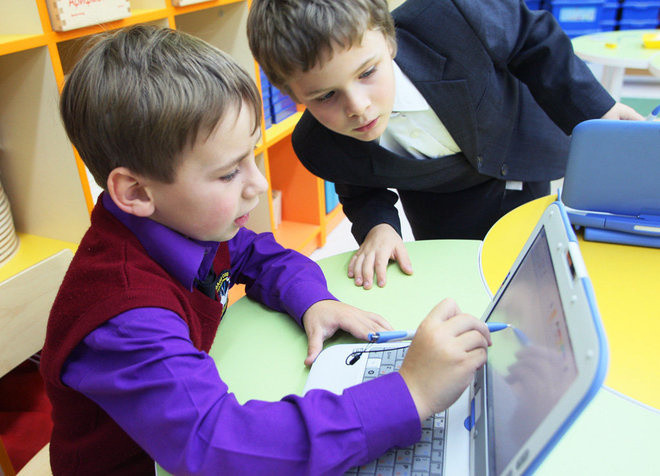
Why is giftedness dangerous, and how to raise a child prodigy?
Only 10 percent of prodigies can develop a secondary, adult talent.
Everyone else grows up to be ordinary people. It’s just that what they study in the general education program for 11 years at school and 5 at the university, they master in childhood.
According to statistics, there are more suicides among child prodigies than among ordinary children. This is due to the fact that they are geniuses only until puberty. And then tragic disappointment awaits them. By this time, they have already managed to form an inflated self-esteem, and it is already very difficult for them and everyone around them to get used to the fact that they are the same as everyone else.
Children should not be forced to grow up ahead of time. This shakes their psyche. High self-esteem and the desire to always be the best prevents them from making friends. They do not know how to communicate in a team; it is difficult for them to establish a personal life. Because in both cases it is necessary to take into account the interests of others. But they are not used to this, because since childhood they consider themselves exceptional. They do not know how to lose and always expect praise.
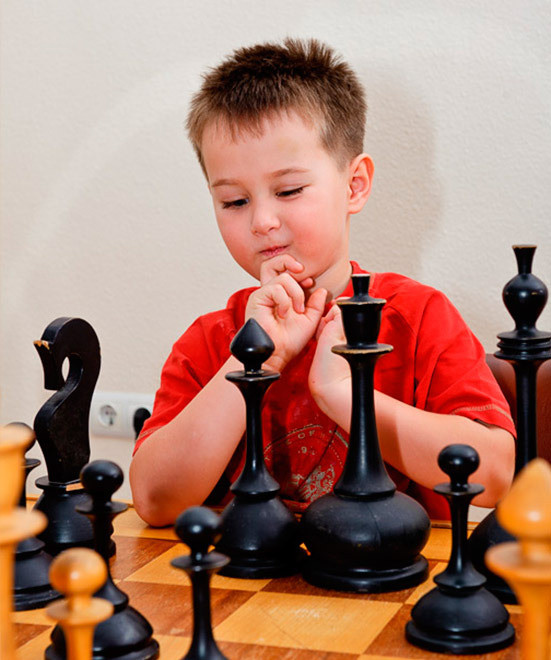
Psychologist at the Center for Successful Relationships Elena Dubovik comments on the problems in raising gifted children as follows:
“Emphasizing a child’s difference from others causes him many difficulties. These are primarily communication problems. The child begins to think: “I’m not from this pack,” “I’m not like others,” which leads to withdrawal from society.”
“Disagreement with natural inclinations is violence, which is interpreted by “Don’t be yourself.” The child feels pressured to live up to the parent's ideal. For him this is a dead end situation.
He cannot express his anger. And, as a result, when he grows up, this can manifest itself in the most unexpected ways.
We must remember that by their nature, other people’s goals are meaningless.”
Several real cases can be cited to confirm the danger and complexity of the personality of a gifted child.
From the age of 4, the young poetess Nika Turbina dictated poems to her mother, full of non-childish experiences. Having matured, she ceased to be a “little miracle” and the public’s interest faded. The girl became uncontrollable. She attempted suicide several times and consumed alcohol and drugs excessively.
Mathematician Pavel Konoplev graduated from university at the age of 18 and entered graduate school at Moscow State University. Due to severe intellectual and emotional overload, he ended up in a psychiatric hospital. Now he is no longer alive.
Whether your child is a child prodigy or not, the main thing is to be attentive to him and develop his abilities without injuring or confusing him.
There are many children's educational centers in Minsk, where children can learn a lot, do their favorite things and show their most unexpected abilities. Maybe sometimes it’s better to trust the experts?
Follow us on Facebook



